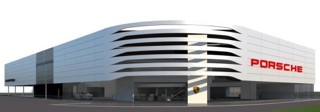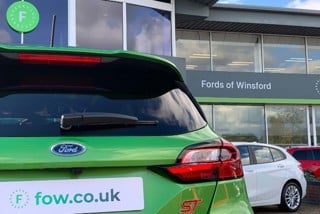Pendragon has revealed that it suffered a £117.4 million loss after tax in 2019 in an annual results statement that revealed the full impact of “significant H1 losses”.
The former AM100-topping car retail group, which trades under the Evans Halshaw and Stratstone brands, restructured its business in 2019 with the closure of 22 failing Car Store businesses, the closure or disposal of six Jaguar Land Rover (JLR) franchised sites and the sale of much of its US motor retail business.
In June last year the group's then new chief executive, Mark Herbert, also left the business after just three months at the helm.
Today’s (March 18) annual financial results statement revealed that Pendragon's restructuring efforts could not come in time to arrest its ailing fortunes after a tough first half of the year.
Turnover declined by 2.6% to £4.5 billion (2018: £4.63bn) – up 3.8% on a like-for-like basis – as post-tax losses grew from £50.5m in 2018 to £117.4m.
Much of that was caused by write-downs of goodwill and assets.
Nevertheless, Pendragon's pre-tax earnings swung from a £47.8 profit in 2018 to a £16.4m loss in 2019.
Net debt had been reduced during 2019 by £6.4m to £119.7m as at December 31, 2019.
Pendragon’s recently-appointed chief executive, Bill Berman, insisted that the business remained “a company with great potential and a very strong team”, however, adding: "2019 was a year of transition for the Group that played out against challenging market conditions, however, we returned to profitable growth in the second half and this provides us with a solid platform for the coming year.
“At the moment, we are closely monitoring the impact of COVID-19 on the economy as the situation continues to develop.”
Berman added: "We will be providing a fuller update on the Group strategy later in the year, which will continue to be based on four strategic pillars; the opportunity to create a strong, stand-alone used car brand, an improved and stable platform in the Franchised UK Motor division, delivering growth in Pinewood and further strengthening our leasing business.
“I am confident in the long-term prospects for Pendragon and look forward to communicating our strategy in more detail in due course."
In comments addressing the potential impact of the COVID-19 coronavirus outbreak, Pendragon said that it did not expect new car supplies to be affected by the factory shutdowns of its OEM partners until the autumn.
It also said: “Consumers can purchase both new and used cars with associated finance over the telephone or internet without visiting dealerships.
“We also offer vehicle delivery to the customer's chosen destination.”
Pendragon said that it had modelled the impact of a severe reduction in vehicle sales over a sustained period on its financial covenants and bank facility limits, adding that it was “well positioned in this regard, with mitigants available in the more severe scenarios where headroom becomes more limited”.
The group added: “However, we have taken some additional protective measures such as deferring commitments in our capital expenditure programme, increasing the flexibility we have in our marketing spend and closely monitoring inventory levels.”
The number of new car sales achieved by Pendragon in 2019 declined by 3.2% to 87,498, with used car sales declining 5.7% to 165,571 during the reported period, which brought saw the head of its Car Store used car division, Chris Caygill, placed on "gardening" leave and the eventual closure of 22 of its 34 locations.
In today’s statement, Pendragon said that it had seen significant performance improvements in the remaining 12 stores since the closure programme was completed, with underlying operating losses reducing to £1.1m in Q4, 2019.
Pendragon’s UK franchised retail operation reported underlying operating loss of £7.7m in H1 2019 (H1 2018 : £31.8m) but delivered an H2 underlying operating profit of £20.7m (H2 2018 : £21.2m), according to the results.
The Pinewood dealer management system (DMS) business delivered an underlying operating profit up 14.5% to £13.4m (2018: £11.7m) – the software business performing well amid continued international expansion into Norway and Sweden.
The Pendragon Vehicle Management leasing division, meanwhile, saw its underlying operating profit decline 13.5% to £12.8m (2018: £14.8m), as a result of the previously disclosed provision release of £2.8m in 2018.


















Login to comment
Comments
No comments have been made yet.